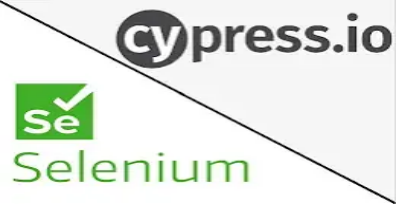
1.Cypress and Selenium are test automation tools used for functional testing of web applications by automating browser actions.
2. Selenium has been a widely-used tool for years, whereas Cypress is a recently introduced tool in the test community.
3. In spite of Cypress being recently introduced, it has gained significant traction.
So, the question is, how does Cypress compare to Selenium? Is Cypress a better alternative to Selenium?
Before we go into the difference between selenium and cypress, we have to know what selenium is and what cypress.
Selenium:
Selenium is an open-source automation tool that automates web browsers. It provides a single interface that lets you write test scripts in programming languages like Java, Ruby, Node.js, PHP and etc. A browser driver then executes these scripts on a browser instance on your device.
Cypress:
Cypress is also Open source test automation tool for testing web applications. Cypress is the new standard in front-end testing that every developer and QA engineer needs. Cypress helps developers and tester to create web automation scripts using JavaScript.
Now we look into the difference between selenium and cypress. we have identified many differences.
- Architecture:
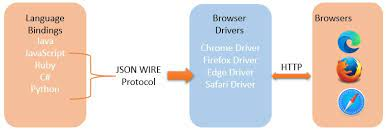
In Selenium, It has Webdriver API which interacts between Browser and Browser drivers. Selenium consists of 4 layers. JSON wire protocol, Browser Drivers, Browsers and Selenium client library.
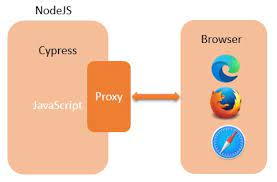
Cypress — Unlike other testing tools which work outside of the browser, Cypress is present inside the browser. With the help of the Node.js server, it interacts with both the front and back end of the applications.
2. Targeted Audience

Selenium can be used only by Testing Team whereas Cypress can be used by both developers and testing team.
3. Language Supported

Selenium supports many programming languages like Java, JavaScript, Python, Ruby, C#, PHP, Perl, etc
But Cypress supports only JavaScript.
4. Browser Supported

Selenium supports Chrome, Firefox, Edge, IE, Safari and Opera whereas Cypress supports Chrome, Firefox, Edge, Electron and Brave.
5. Framework Supported

Selenium has a long list of framework support like JUnit, TestNG, PyUnit, Jbehave, Behave, Gauge, NUnit, Cucumber, Robot, Mocha and more.
But Cypress supports Mocha Only.
6. Operating Systems

Selenium supports Windows, Mac, Linux/Unix whereas Cypress supports Windows 7 and above, macOS, Linux, Fedora, and Debian.
7. Setup Complexity

Setup in Selenium is a bit challenging as it requires downloading browser-specific drivers and setting up the test environment. On the other hand setup in Cypress is simple, No dependencies or additional downloads are required.
8. Integration with other tools
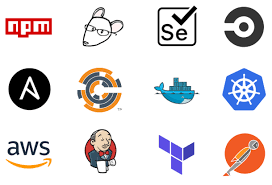
For Selenium, a wide range of integration options are available CI/CD tools, reporting tools, and many more but with Cypress limited integration support with CI/CD tools when we compare them.
9. Driver Dependency
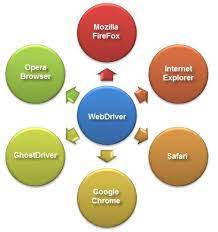
In Selenium, an Appropriate browser driver has to be installed so that the test script can talk to the corresponding web browser. But there is no such layer of a driver in Cypress it directly interacts with web browser.
10. iFrame
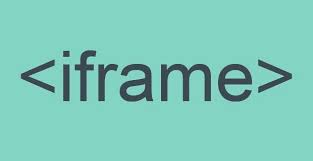
iFrame has very good support in Selenium but in Cypress we have a workaround.
11. Execution Speed

The execution speed of Selenium is comparatively slower than Cypress.
12. Automatic waiting

No such support in Selenium but in Cypress no requirement to add waits or sleep in the tests. Cypress automatically waits for commands and assertions before moving to the next instruction.
13. Default Screenshot and Videos

In Selenium we need to write code for support adding screenshots and videos. But Cypress we have direct support for it.
14. Mocking Server
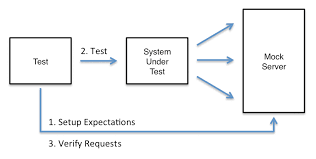
No such thing in Selenium but Cypress has built-in facilities for mocking server responses.
15. Documentation and Community support

Selenium is Well established documentation and firm community support from users across the globe whereas Cypress is Very intuitive documentation along with a rapidly growing community.
16. Parallel Testing
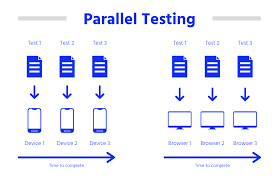
Both Selenium and Cypress support Parallel Testing.
17. Mobile Testing

Mobile testing is directly not supported in Selenium but using Appium, we can do it. But no support in Cypress for mobile testing.
Conclusion:
Although Selenium and Cypress are both designed to automate browsers for testing purposes, they differ considerably in terms of architecture and performance. A better approach would be evaluating both the tools and seeing how Selenium and Cypress can be used to improve test coverage for your project.

No comments:
Post a Comment